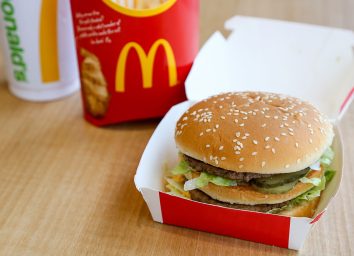Ugly Side Effects of Eating Too Much McDonald's, According to Nutritionists
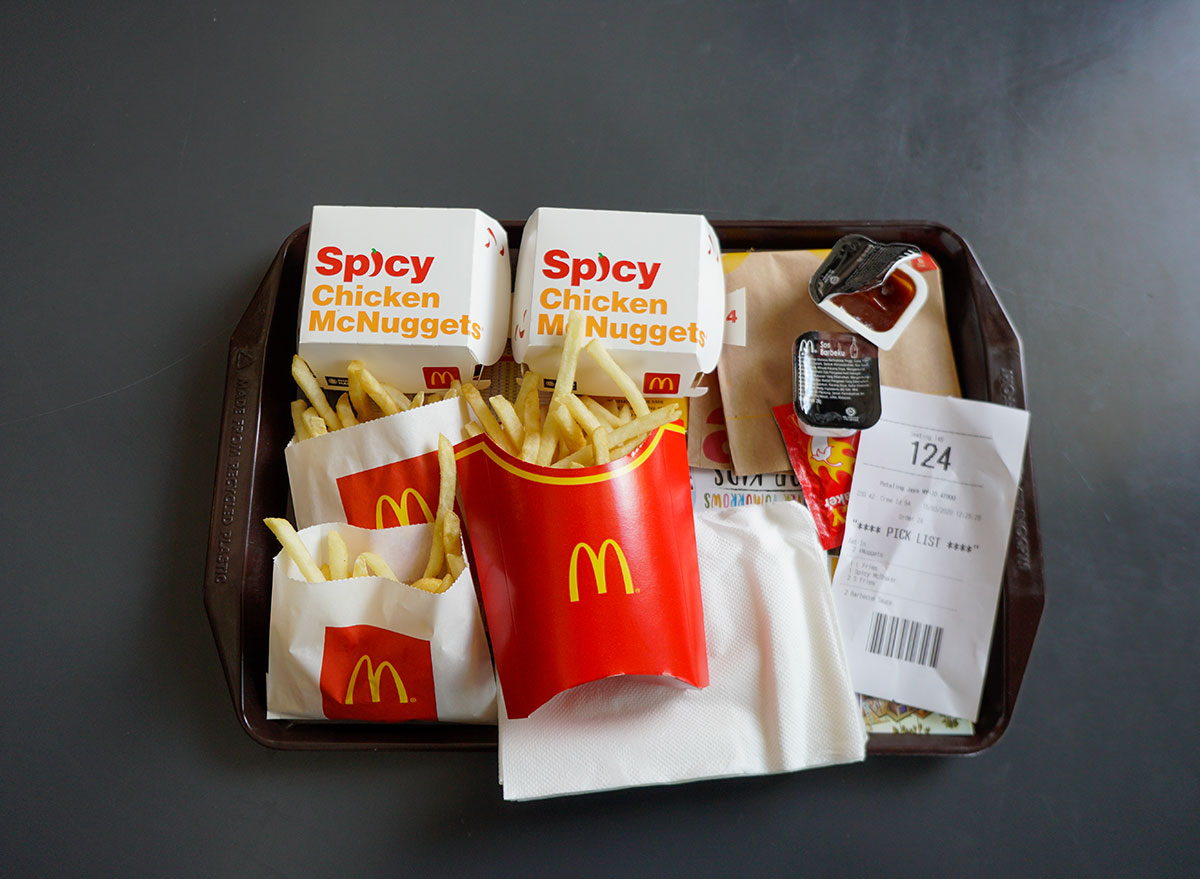
McDonald's Golden Arches are like the Sirens of Greek mythology who coaxed sailors with their sweet songs to shipwreck destruction on rocky coasts. Maybe we're being a bit melodramatic, but, hey, haven't you seen the Micky D's sign through your windshield and begun to salivate for a large fries and a Shamrock Shake?
McDonald's fare, like all fast foods, is designed with the perfect combo of mouthwatering fat, sugar, salt, and meat protein to trigger our submandibular glands and ultimately force our hands to turn the steering wheel toward the drive thru.
Like the Sirens' song that lured sailors to their doom, a regular habit of fast food may seal a similar fate for you, according to nutritionists we consulted. While an occasional visit to McDonald's may be good for your psyche—think Happy Meal or college munchies memories—those bags of deliciousness may come with some ugly side effects, the experts say. And for more useful eating-out advice, read about these restaurant side dishes you should never order.
Getting supersized.
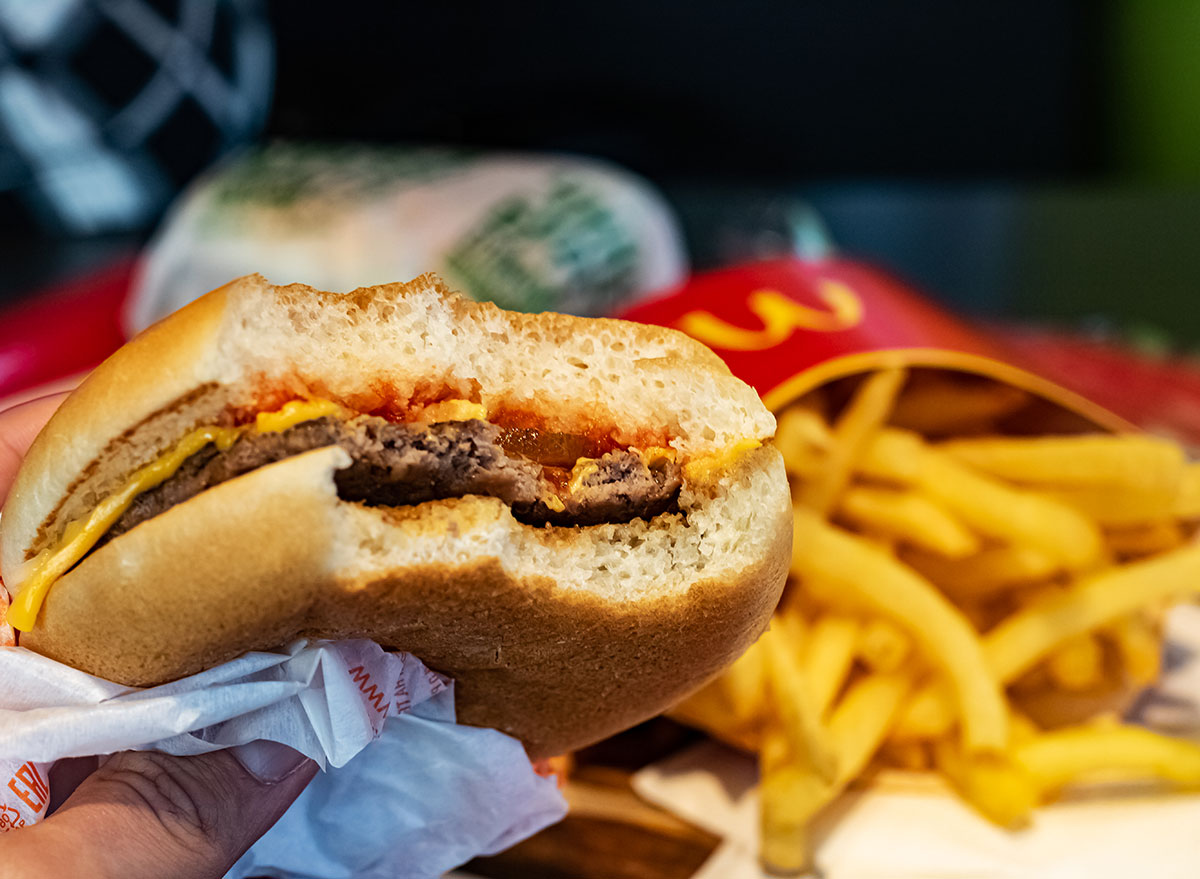
Weight gain is a not-so-surprising potential side effect of eating a lot of calorie-dense fast foods. But the negatives become easier to visualize when you consider the sheer enormity of the portions you are served. "As a portion-size researcher tracking the history of growing portion sizes, my research found that fast-food portions are 2 to 5 times larger than they were in the past—and that includes McDonald's," says nutritionist Lisa Young, PhD, RDN, author of Finally Full, Finally Slim.
"Double and triple burgers along with oversized sodas contain lots of calories which can easily lead to weight gain. One meal can contain an entire day's worth of calories." Just consider this combo: Double Quarter Pounder with Cheese (740 cal.), large World-Famous Fries (490), large Fanta (300), regular McFlurry with Oreo Cookies (510) = 2,040 total calories!
Low energy.
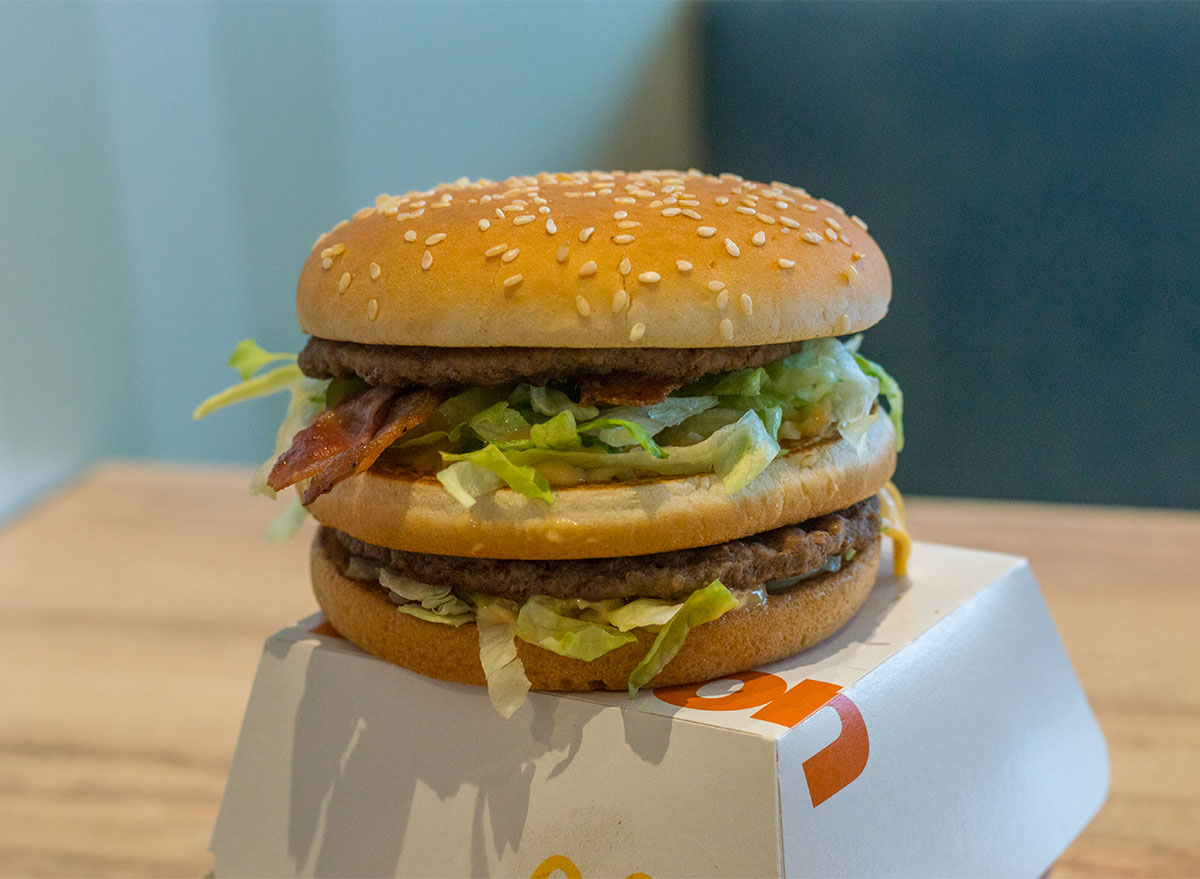
"One of the most immediate effects of eating at McDonald's is feeling extremely tired and groggy after your meal," says Bansari Acharya RDN, a registered dietitian nutritionist at FoodLove.com. "Your body feels like it has low energy due to it trying to digest the overload of fat and sugar."
A long-term effect of a fast-food diet may be chronic fatigue. Animal studies at UCLA's Brain Research Institute suggest that a regular diet of highly processed foods either directly causes fatigue or causes obesity, which causes fatigue. Instead of grabbing a bite from McDonald's, give yourself a boost of energy with these 30 Best Foods That Give You All-Day Energy.
Bloating, constipation, and worse.
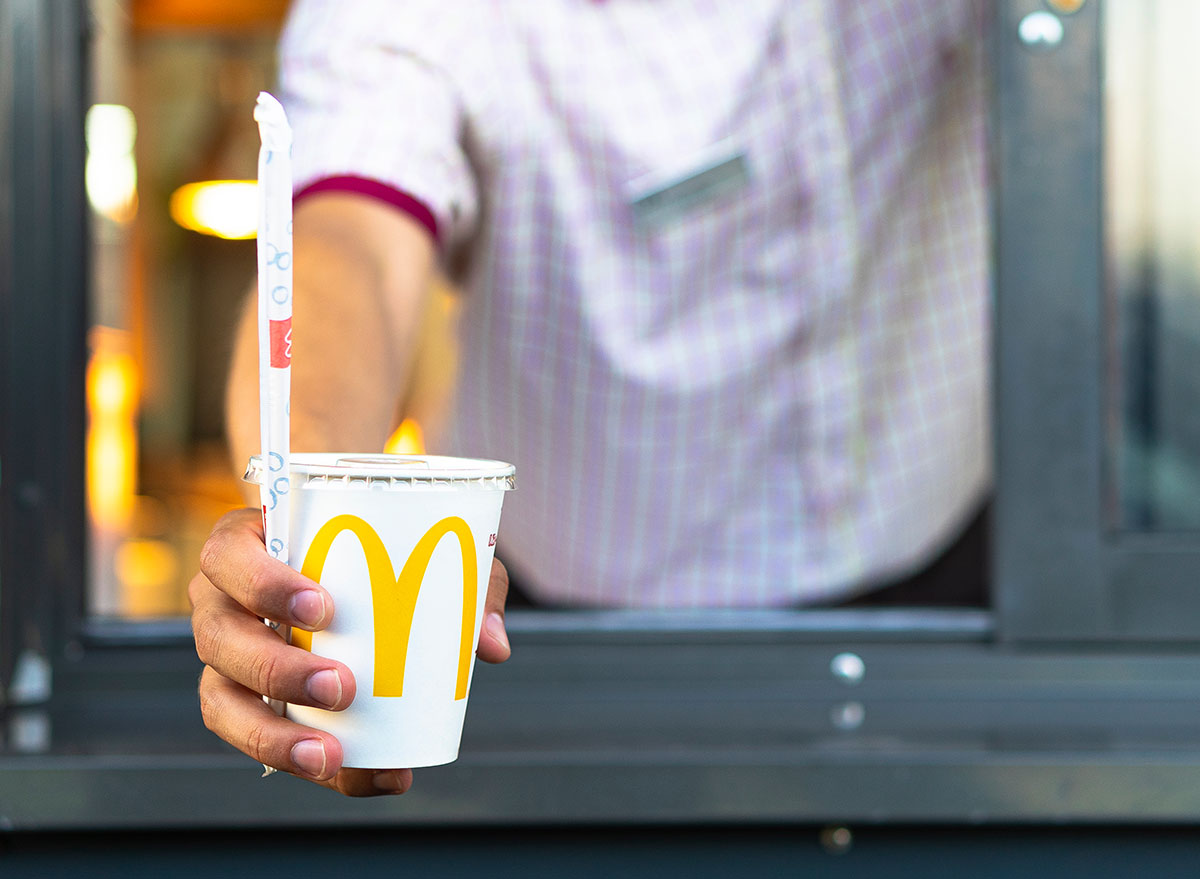
McDonald's offers upwards of 15 sodas and other sugar-sweetened beverages to satisfy your thirst. The problem is all those added sugars you're swallowing can quickly affect your health, triggering bloating, constipation, and more.
"Diets high in sugar have been shown to have the potential to decrease the microbial diversity in the gut after just one week's time," says Jinan Banna, PhD, RD, an associate professor of nutrition at the University of Hawaii at Mānoa. "Loss of microbial diversity in the gut microbiota has been shown to be associated with most of the human diseases affecting westernized countries." Those maladies include inflammatory bowel disease, obesity, cancer, and autism, according to the report "Impacts of Gut Bacteria on Human Health and Diseases" in the International Journal of Molecular Sciences.
Sodium overload.
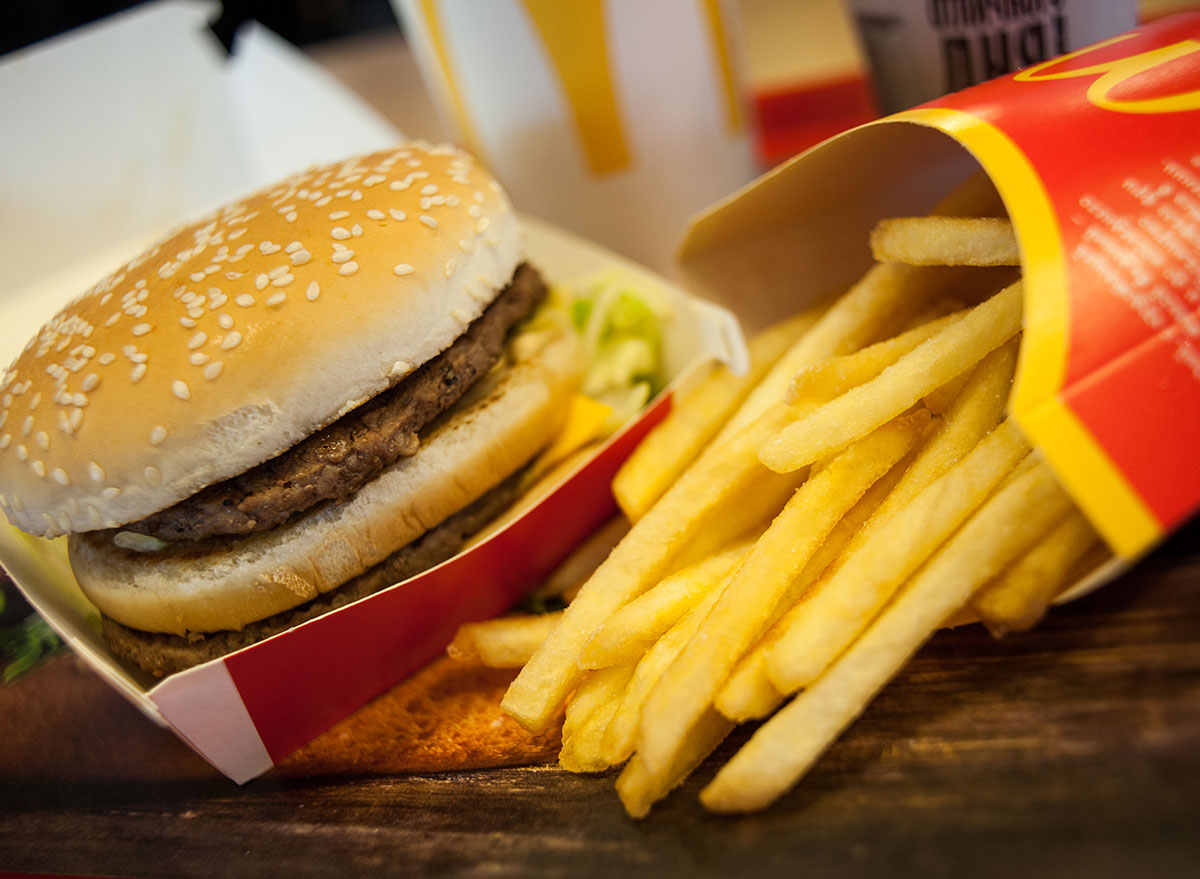
A Big Mac packs 1,010 milligrams of sodium. Pair it with a large fries (400 milligrams) and a medium chocolate shake (190 milligrams) and you're looking at more sodium in a sitting than the American Heart Association's recommended ideal limit for a day.
It's well known that salty foods can raise blood pressure (it's especially true for those who are sensitive to sodium or already have hypertension). But were you aware of another potential side effect of a high-sodium McDonald's meal? Bloating. In a study in the American Journal of Gastroenterology that examined high- and low-sodium diets, researchers discovered that high salt intake increased the risk of bloating by about 27% compared with low-sodium diets. Just like these 19 Foods That Cause Bloating And Gut Discomfort.
A shorter life.
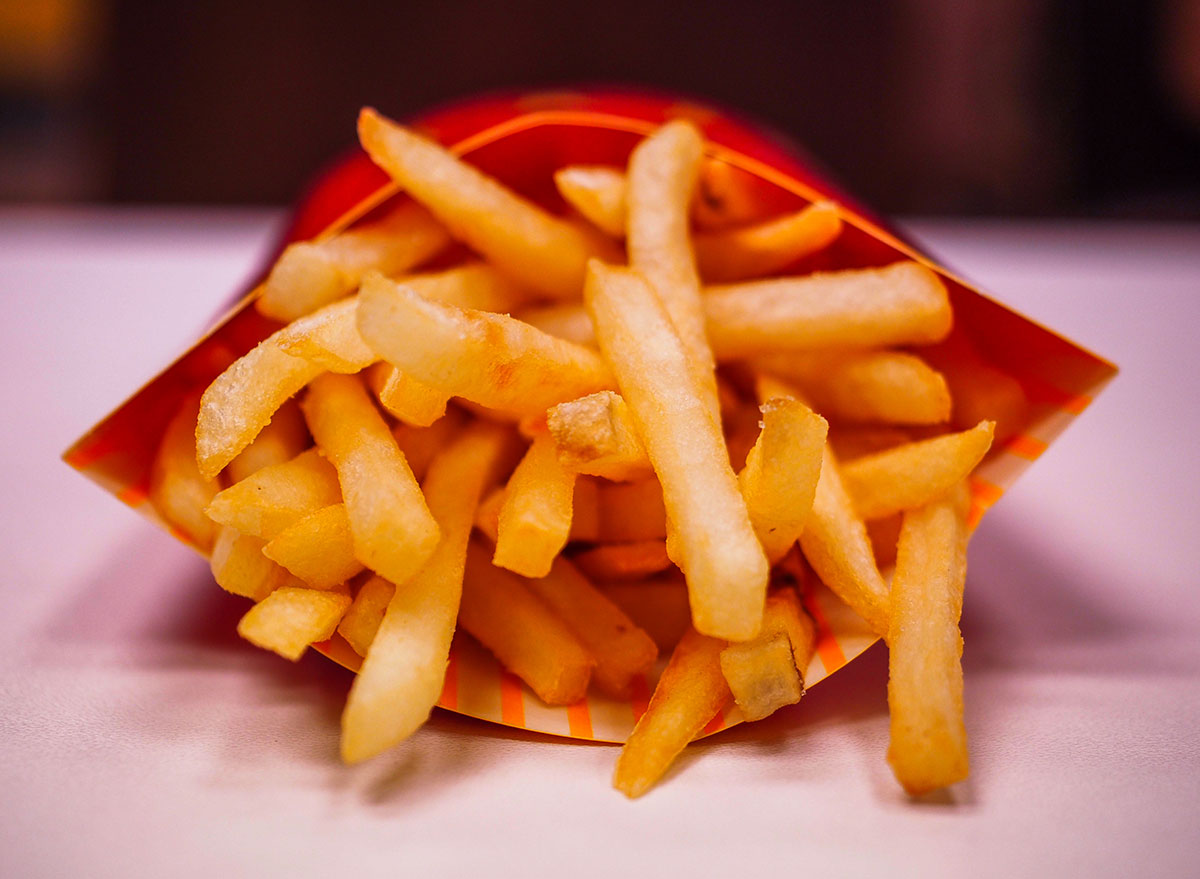
Of course, an occasional cheeseburger isn't going to send you to the cemetery prematurely, but you don't have to be an actuary to recognize the health risks of eating a lot of fast-food every week, particularly metabolic syndrome, a cluster of symptoms that include a large waist, high triglycerides, low HDL "good" cholesterol, and elevated blood pressure and blood sugar.
"While red meat provides some essential nutrients, including protein and iron, this is not something good to consume in excess," says Dr. Bana. Red meat and fried foods—which make up the bulk of McDonald's menu offerings—are high in saturated fat, and overconsumption may contribute to the development of conditions such as heart disease, type 2 diabetes, and cancer, she says. A few years ago, a Harvard study in BMJ suggested that increased red meat intake boosts your risk for early death. But there are many things you can do to improve your chances of blowing out 100 birthday candles someday: Check out these easy ways to live longer, according to doctors.
A gnawing emptiness.
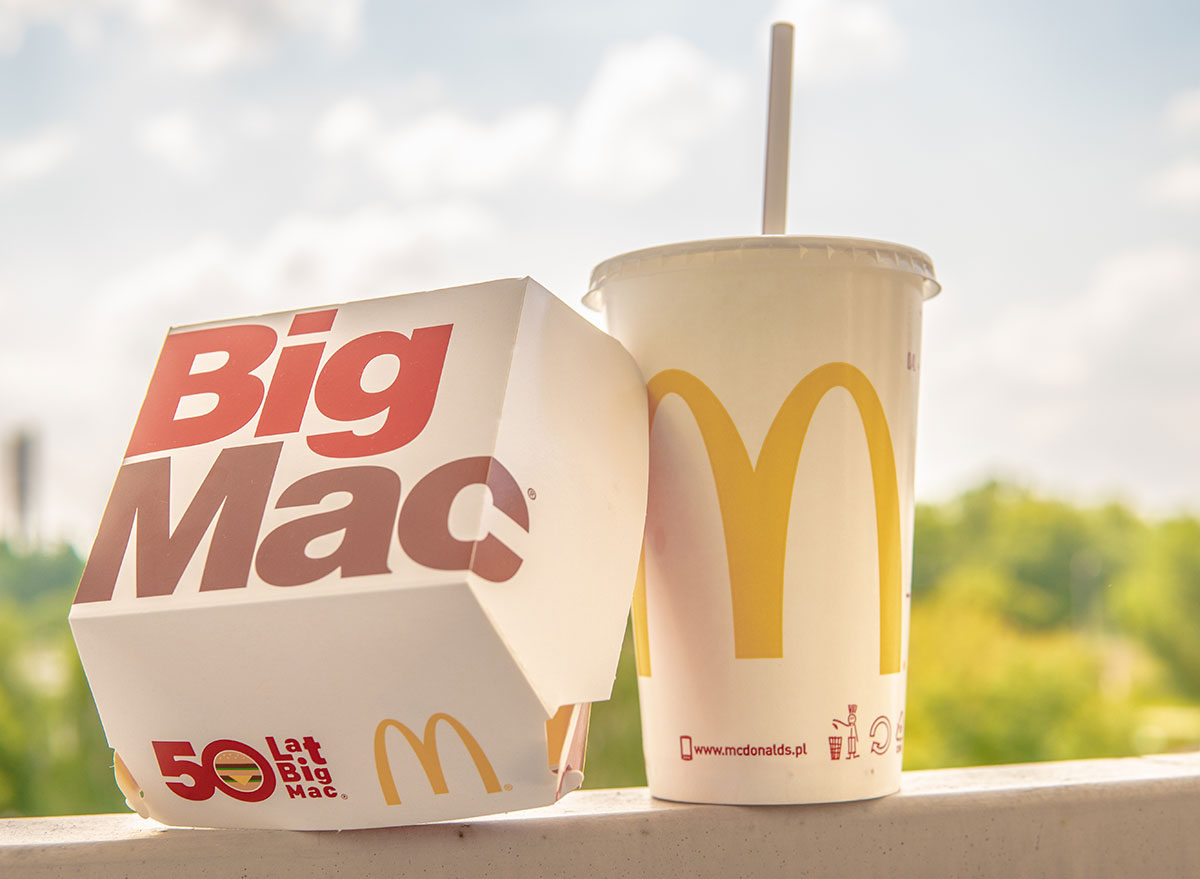
The sheer volume of fast food may expand your stomach, but its nutritional inadequacies will leave you empty inside. What's more, the content of that food can quickly usher back even stronger hunger pangs, says Joey Thurman, CPT, FNS, a nutrition expert and personal trainer at kuudose. "Just take a look at McDonald's pancakes breakfast which gives you a tremendous insulin spike from the syrup and fiber-void, highly processed, high-glycemic ingredients," he says. High glycemic foods are absorbed quickly, causing a rapid rise in blood sugar and an equally quick dip that may trigger shaky feelings and a hunger for more quick carbs. A regular diet of these foods will send you "on your way to taking years off of your life through diabetes, heart disease, and all sorts of other issues," says Thurman, author of 365 Health and Fitness Hacks That Could Save Your Life.
Trouble getting pregnant.
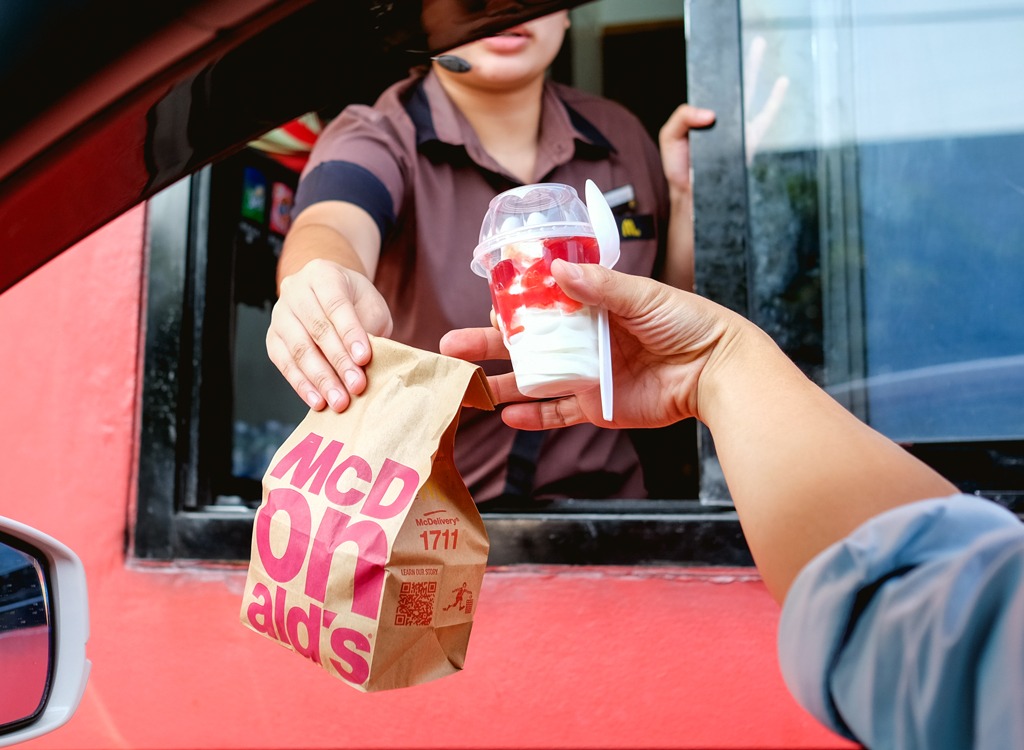
There are a lot of reasons to avoid frequent stops to fast food joints like McDonald's when trying to get pregnant. "Studies link red meat to decreased fertility outcomes, and multiple studies have shown that fast food intake is associated with poorer fertility outcomes," says nutrition consultant Nicole Avena, PhD, an assistant professor of neuroscience at Mount Sinai School of Medicine and author of the book What to Eat When You Want to Get Pregnant. She advises those who are already pregnant to avoid fast foods because they are high in salt and saturated fats, "which are not the 'healthy' types of fats, like omega-3s needed for brain development."
